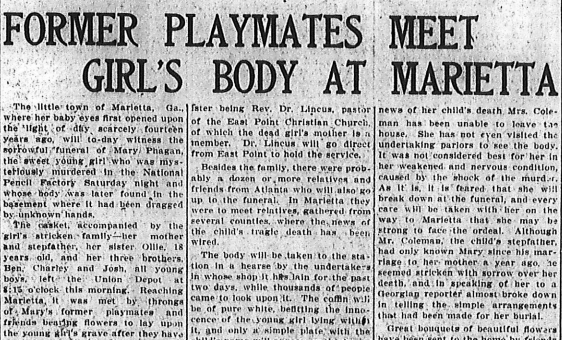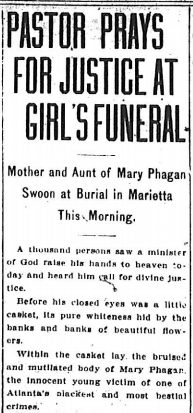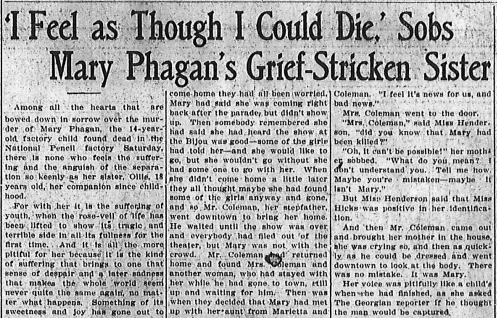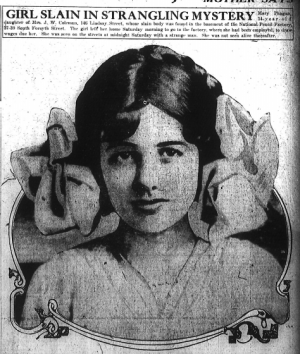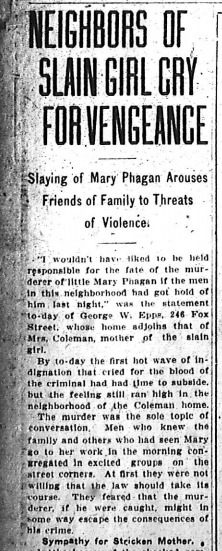Another in our series of new transcriptions of contemporary articles on the Leo Frank case.
Atlanta Georgian
Sunday, June 8th, 1913
Average Atlantan Believes Frank is Guilty, but That Little Real Evidence Has Yet Pointed to Him as Slayer.
Stirring Defense by Wife and Attack on Solicitor Dorsey Are Two Striking Features of Week’s Progress in Case.
by AN OLD POLICE REPORTER.
I have thought a good deal during the past week about a fine young newspaper man I used to know some fifteen years ago, and particularly of the last thing he said to me before he died.
He was a Georgian, too. We had been college mates and fraternity mates, and all that sort of thing.
After we graduated, he plunged into newspaper work, and I studied law. I practiced—to a limited extent—that honorable profession for some four years, but abandoned it eventually for newspaper work, and when I plunged in also, I asked him how about it.
This is what he said: “There is only one thing about it. Work fast, get your facts straight, beat ‘em if you can—but don’t go off half-cocked. Don’t get yourself where you have to take back things—but don’t be afraid to take ‘em back, if necessary—and be fair. The Golden Rule is, ‘BE FAIR!’ Unless you are fair, you will not respect yourself, and nobody else will respect you!”
Phagan Case Shows People Are Fair.
I find that most people ARE fair. I believe there is in the hearts of nine people in every ten one meets a desire to see his fellow-man get “a square deal.” And I believe it more nowadays than I ever believed it before, for the progress of the Phagan investigation has reaffirmed my faith in my fellow-man.
The Atlanta Georgian was the first newspaper to give pause to the riot of passion, misunderstanding, misinformation and rank prejudice primarily set in motion by the slaying of little Mary Phagan. Continue Reading →

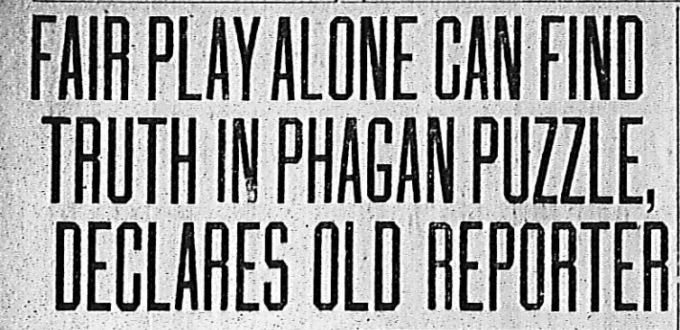
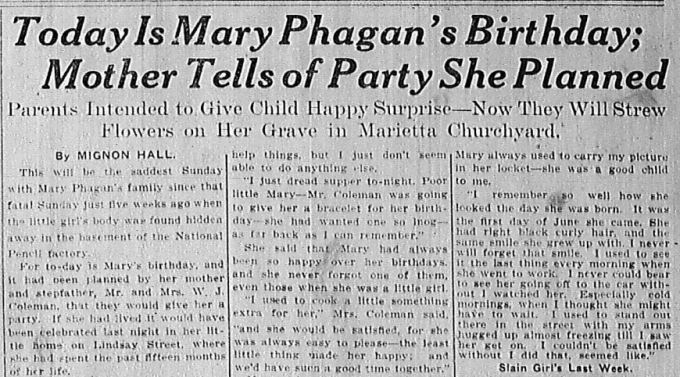
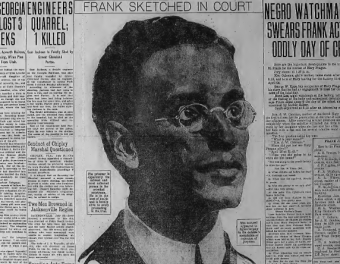
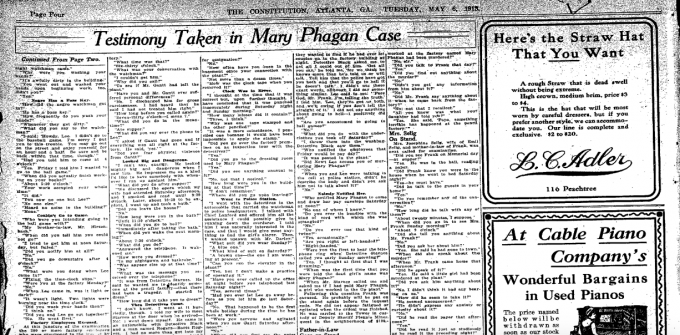
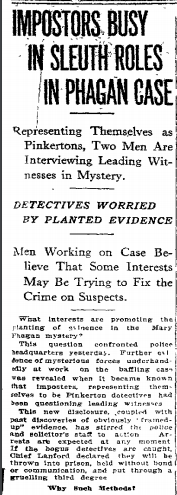
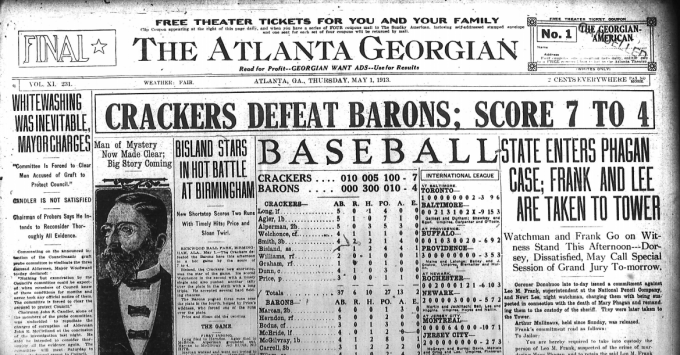
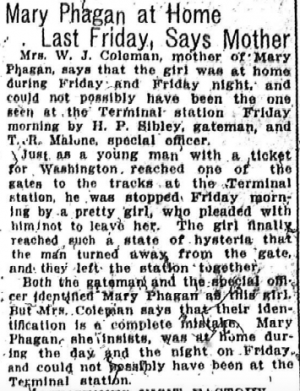
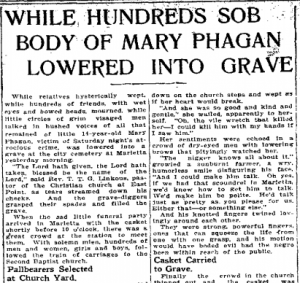
![John M. Gantt, former bookkeeper of the National Pencil company, and acquaintance of Mary Phagan, who is under arrest, and was put through a gruelling [sic] third degree last night at police station. He maintains his innocence.](https://www.leofrank.org/wp-content/uploads/2016/03/Pinkertons-Hired-to-Assist-Police-Probe-the-Murder-of-Mary-Phagan-300x461.png)
